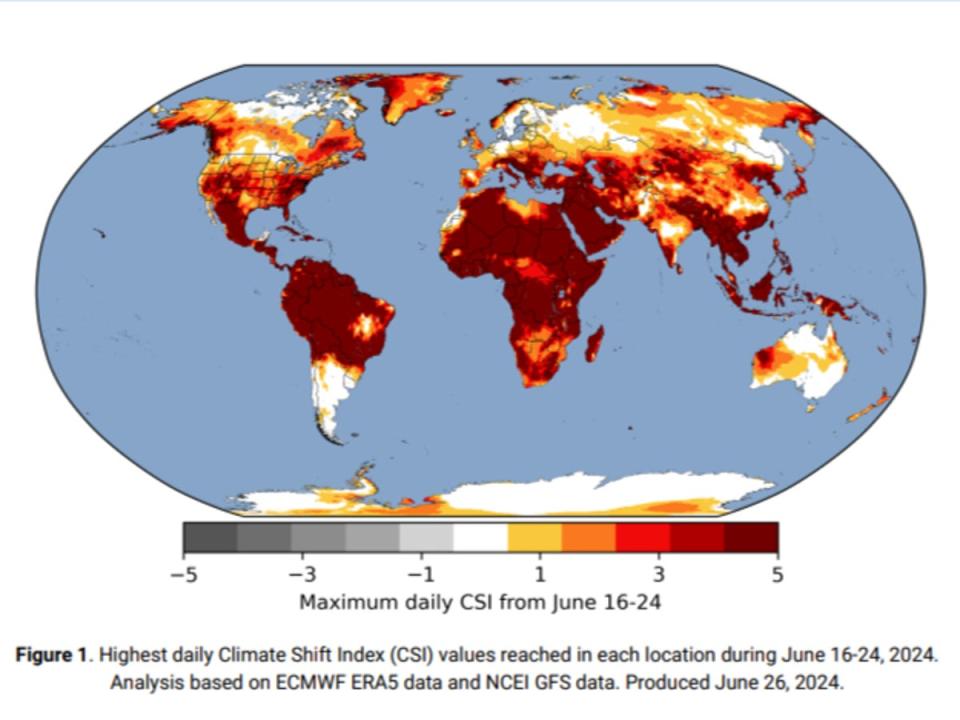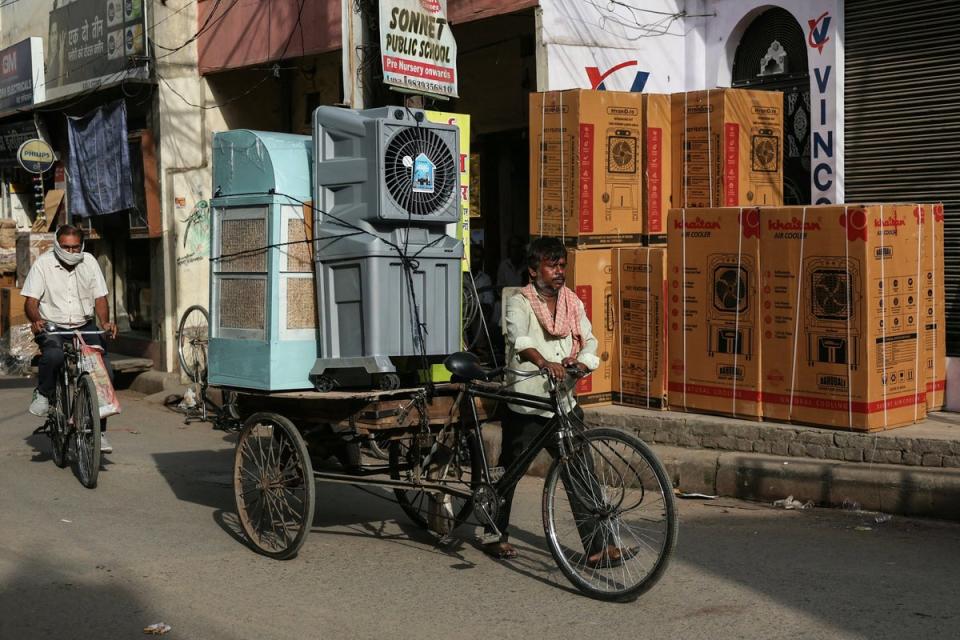Nearly 5 billion people lived under extreme temperatures in June, study finds
More than 60 per cent of the world’s population endured extreme heat driven by the climate crisis over nine days in mid-June, according to a new study.
Approximately 5 billion people lived in extreme temperatures that were made at least three times more likely due to the climate crisis.
The study, published by Climate Central, covered the period from 16 to 24 June.
Andrew Pershing, vice president for science at Climate Central, said the heatwaves were an “unnatural disaster”.
“More than a century of burning coal, oil, and natural gas has given us an increasingly dangerous world,” he said.
“The heatwaves popping up around the world this summer are unnatural disasters that will become more common until carbon pollution stops.”
In India, which recorded its longest-ever heatwave this summer, at least 619 million people, over half of the population, experienced severe heat, with maximum temperatures approaching 50C and night-time lows of 37C.
The intense heatwave led to over 40,000 cases of heatstroke and over 100 deaths, according to official figures which are likely an undercount.
China too saw temperatures hitting 50C, the highest-ever recorded in June. Wuhan warned of potential electricity rationing due to increased demand for air conditioning.

In Saudi Arabia, at least 1,300 people died from heat-related illnesses during the Hajj pilgrimage, with temperatures in some cities surpassing 50C.
“ClimaMeter’s report highlights that the deadly heat during this year’s Hajj is directly linked to fossil fuel burning and has affected the most vulnerable pilgrims,” said Davide Faranda, a researcher at the French National Centre for Scientific Research.
The US faced back-to-back heatwaves with southern states experiencing temperatures of 52C.
New York saw a 500-600 per cent increase in heat-related emergency visits, with temperatures made up to 2C hotter due to the climate crisis.
The Mediterranean also suffered, with Greece’s Acropolis shutting down after temperatures rose above 43C. Six tourists, including British Tv doctor Michael Mosley, died.
In Egypt, nearly 50C temperatures led to daily power cuts to manage the surge in energy consumption.

The extreme heat extended to the Southern Hemisphere, breaking records in Paraguay and Peru.
“Oil-rich nations worldwide must heed calls from the UN secretary general and scientists by decisively transitioning away from and phasing out fossil fuels,” Imam Saffet Catovic, director of UN Operations at Justice For All, said. “These fuels cause the climate crisis.”
Extreme heat is a well-documented effect of the climate crisis, which is caused by the burning of fossil fuels and deforestation. Extreme heatwaves that occurred once every 50 years now arrive nearly five times more often and are 1.5C warmer, according to the IPCC, the UN’s panel of top climate scientists.
Scientists have warned that the extreme heatwaves could become much more frequent and harm more people if fossil fuel use continued at the current rate.
“The climate crisis is the greatest threat to human rights globally,” Johnny White, a lawyer at ClientEarth, an environmental law charity, said.
“Loss of life and harm to people’s wellbeing will only increase if systemic emitters don’t rapidly rein in the fossil fuels driving dangerous heat spikes and other extreme weather events.”

 Yahoo News
Yahoo News 
